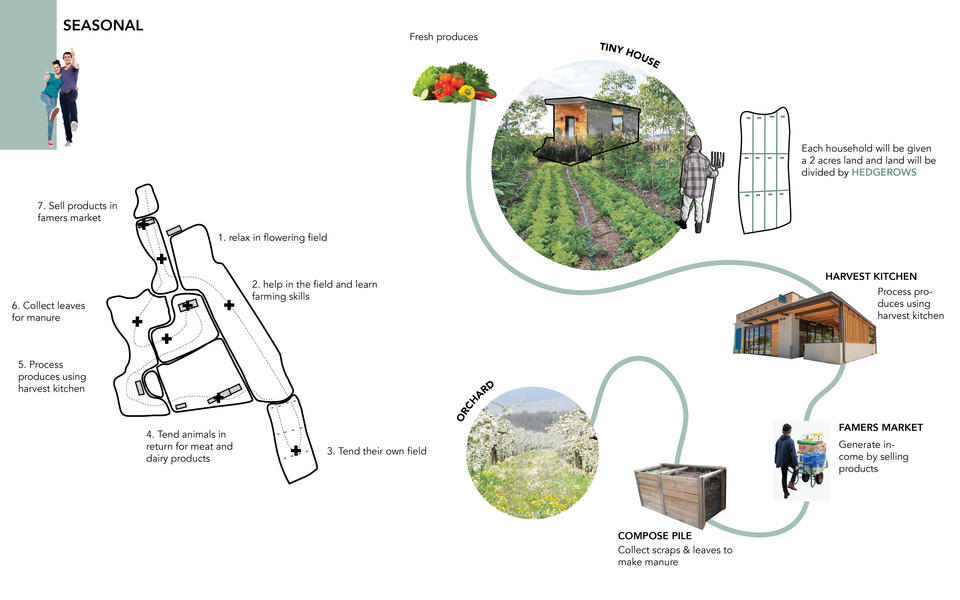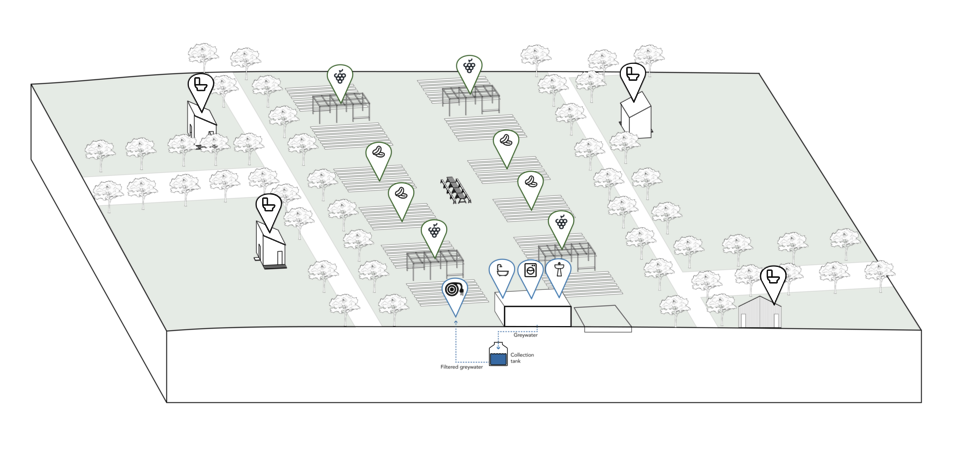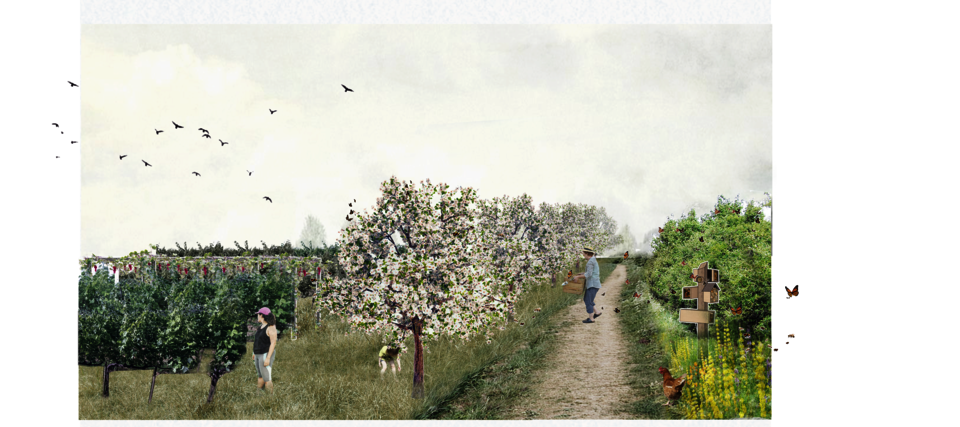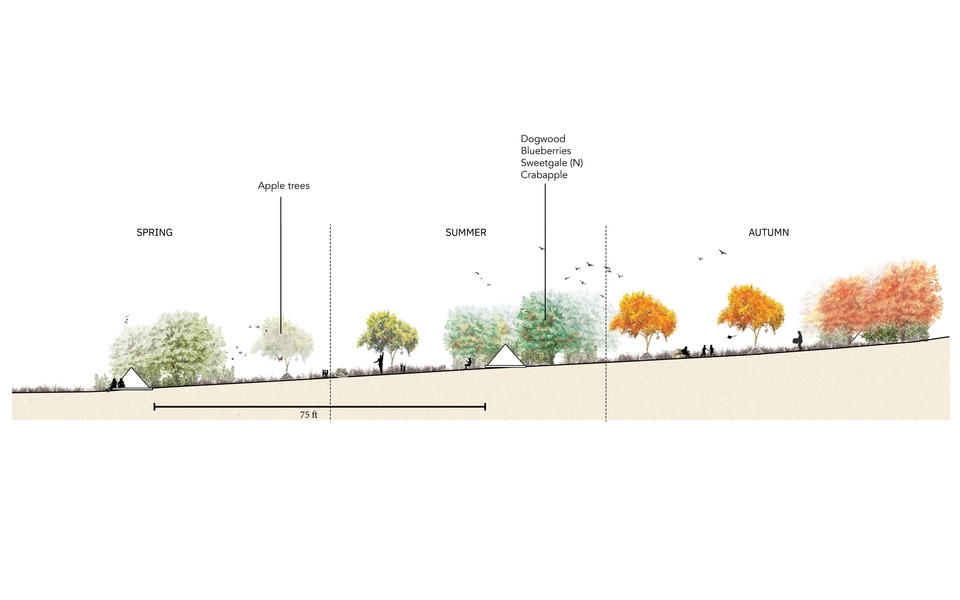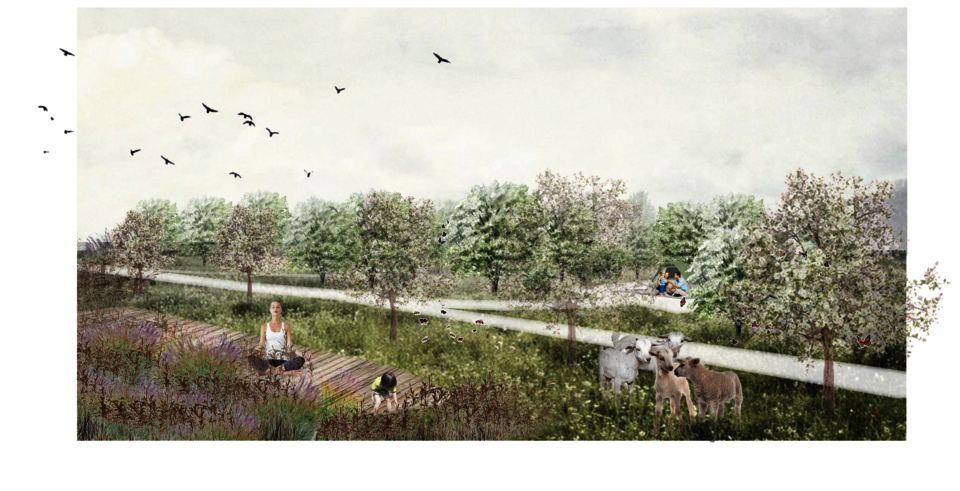Image
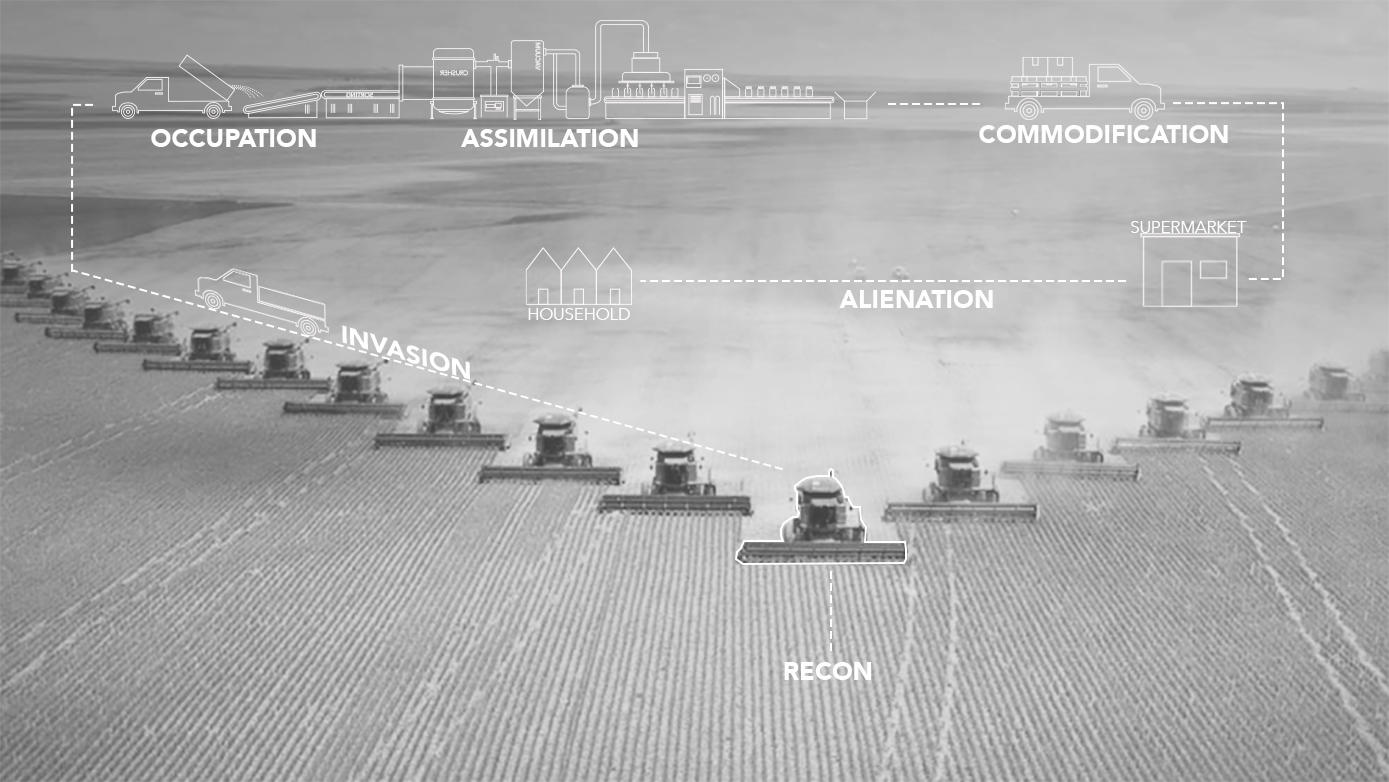
Sirui Wang
Farming publics: Use farming practices as a tool to de-alienate people with land
Historically, farming was the primary way people interacted with the land. Colonialism, industrialization, and capitalism have made people increasingly detached and alienated from nature and the land. The return to agriculture has the potential to play an essential role in resisting the increasing monoculture of our society through re-establishing the kinship toward land. The rising public awareness of sustainability makes the market for organic food expand every year and allures capitalism to manipulate the organic market from its original purpose into their familiar realm of the conventional food system for maximum profit. The market economy, which is controlled by capitalism, limits the method of farming and consumption by restricting the connection between farmers, consumers, and the land. Ignoring the voice of land and people is one of the strategies used in colonialism, and rebuilding an equal relationship with the land is fundamental to counteract the domination of urban areas.
As the health of the land is deteriorating from increased monoculture and economic pressure, there is an urgent need for landscape architects to consider how to re-establishing the kinship towards the land. In this thesis, I investigated the potential of a non-profit farm to provide a point of access for people living in cities to reconnect to the land through spending time participating in farming activities. The public can interact with the farm in varying ways for different amounts of time. Daily visitors can enjoy the beautiful scenery produced by perennial sunflowers and other vegetable gardens. Weekend visitors can camp and offer their labor for additional activities such as foraging and fruit picking. For people who want to start a farming career, there are rentable 1-acre farming plots, and tiny houses installed on-site for beginner producers to live inexpensively while gaining skills, experimenting, and learning from each other. The rentable farmland serves to diversify the demographic of predominantly white farmers as they are the remainder of colonialization. Through this, the aim is to shift away from capitalist and colonial attitudes about land and land ownership and stimulate a new culture between people and the land by generating connection to place through farming practices.
Image

Capitalism and colonialism is alienating people from the land
Alienation has been created. Between people and land we live in since we lost track of the land identity because of uniformity. The detachment between producers and consumers has also been created because this assimilation process also blocks the voice of farmers to be heard and limits the choice of purchasing.
Image
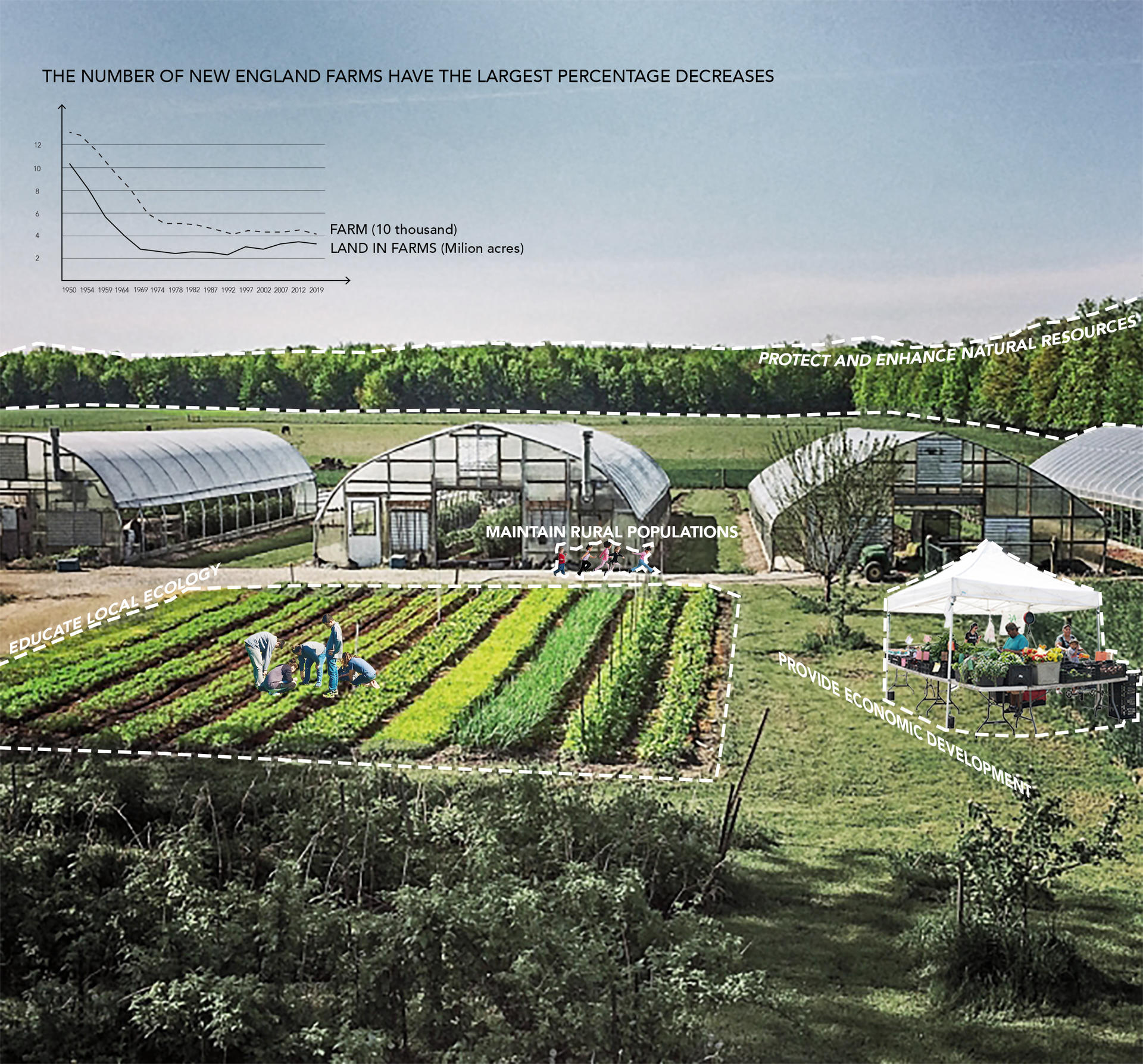
Benefits of small-scale farms
The increasing expansion of the organic market only benefits the large operation and leave small-scale farms in constant struggles. However, it is the small farms that can be most beneficial to the local communities.
Image
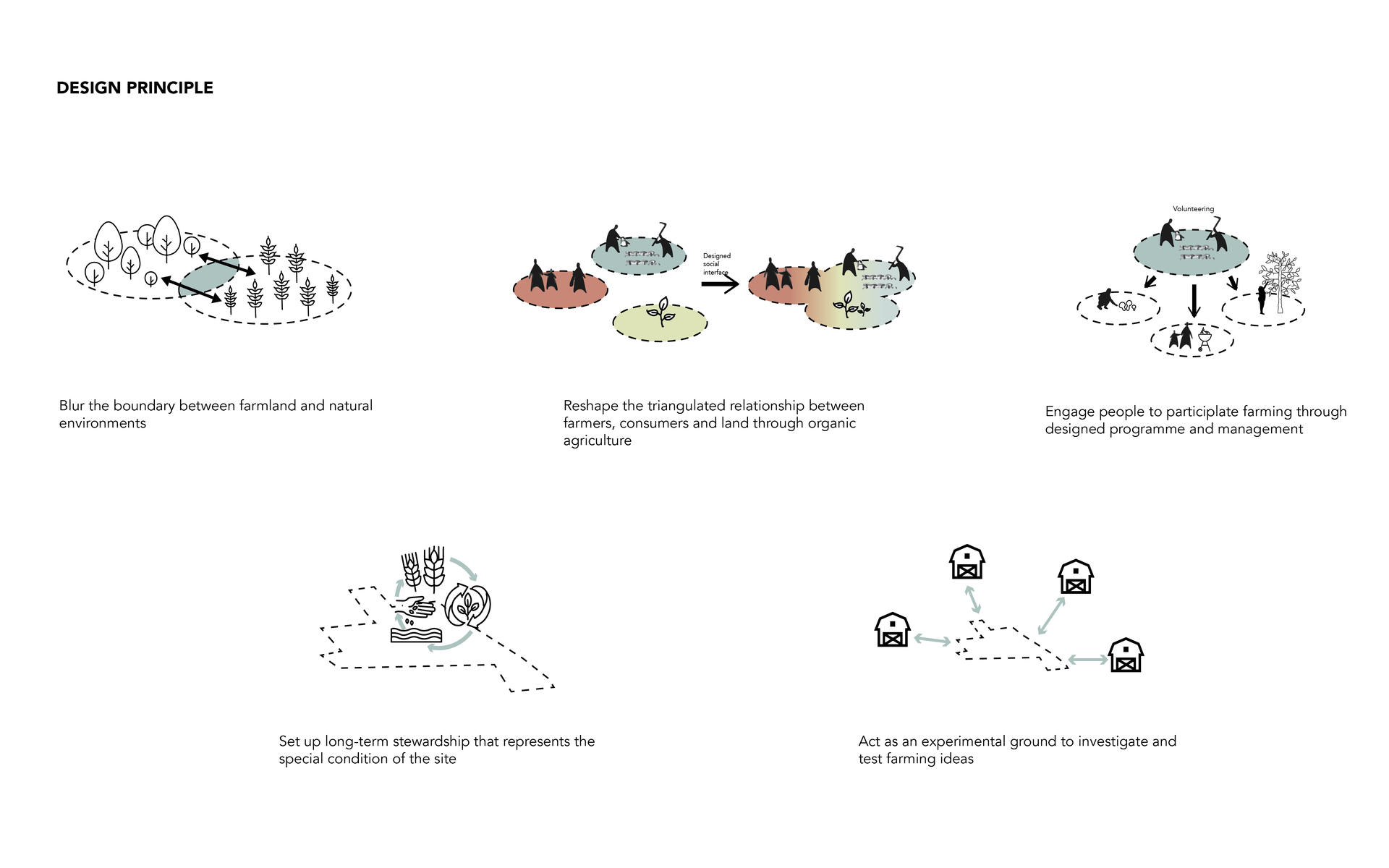
Design Principle
Design principles to set guidelines for the site design.
Image
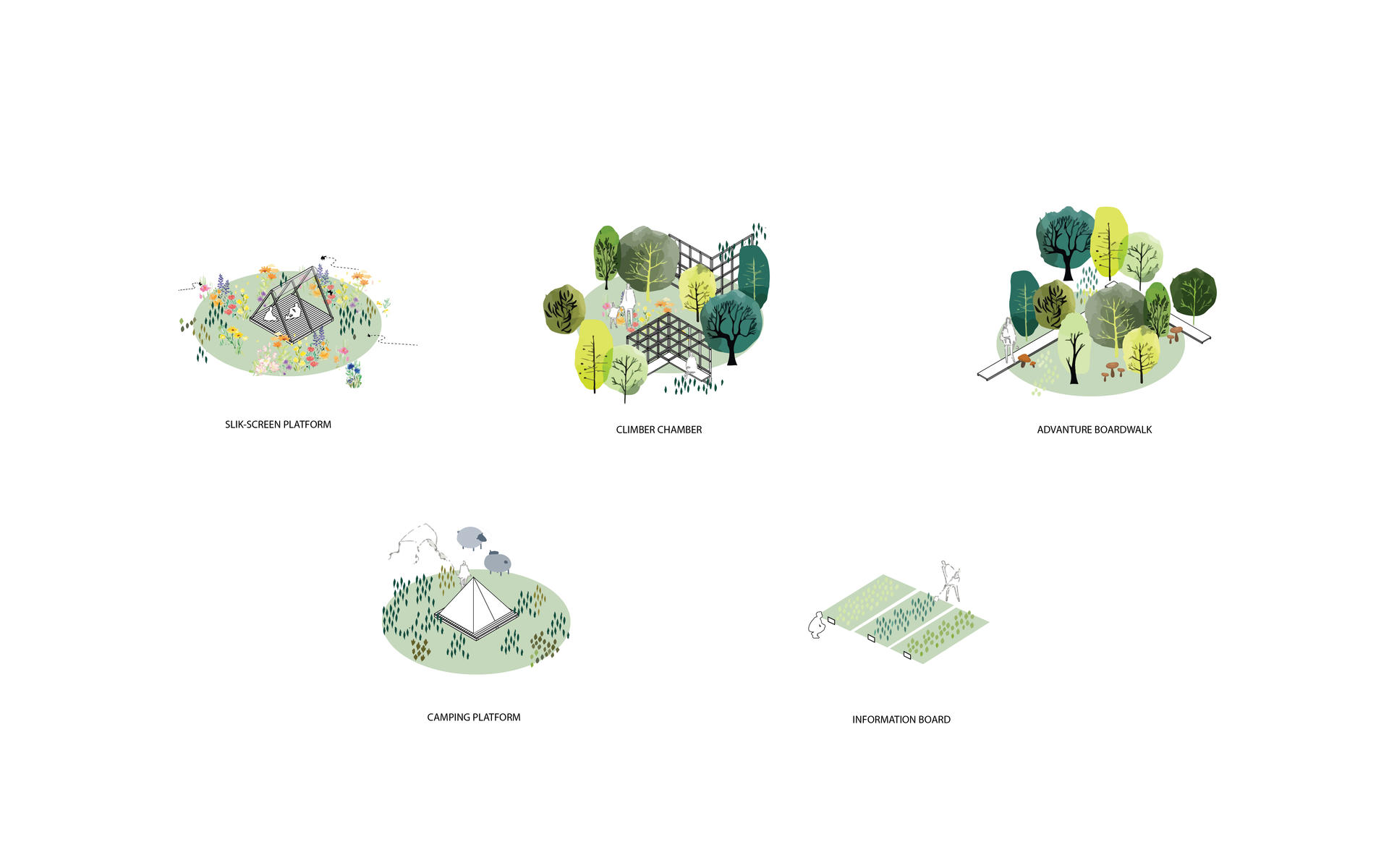
STRUCTURE TYPOLOGY
There are five physical structures that will be scattered around the site to enhance the visitor experience.
Image
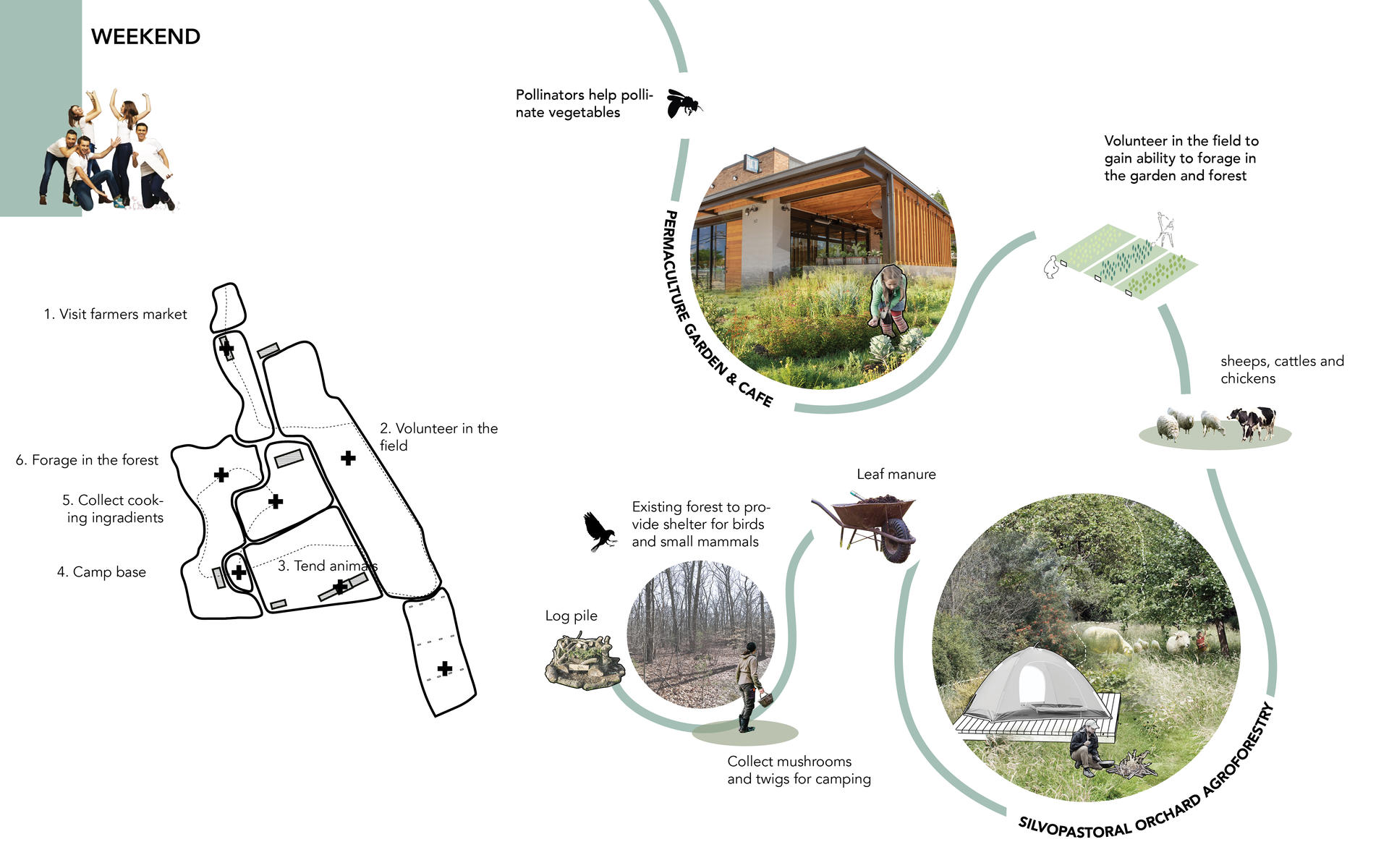
Itenary for people who stay on the farm over the weekend
A group of friends who want to stay longer on the farm will be allowed to camp in the designated camp area. After volunteering in the field, they will be given the ability to forage in the orchard and nearby forest and pick some additional ingredients in the permaculture garden, depending on the location and length of their volunteering work. While staying, people will absorb sheep and cows to graze freely in the orchard area.
- Architecture
- Ceramics
- Design Engineering
- Digital + Media
- Furniture Design
- Global Arts and Cultures
- Glass
- Graphic Design
- Industrial Design
- Interior Architecture
- Jewelry + Metalsmithing
- Landscape Architecture
- Nature-Culture-Sustainability Studies
- Painting
- Photography
- Printmaking
- Sculpture
- TLAD
- Textiles
